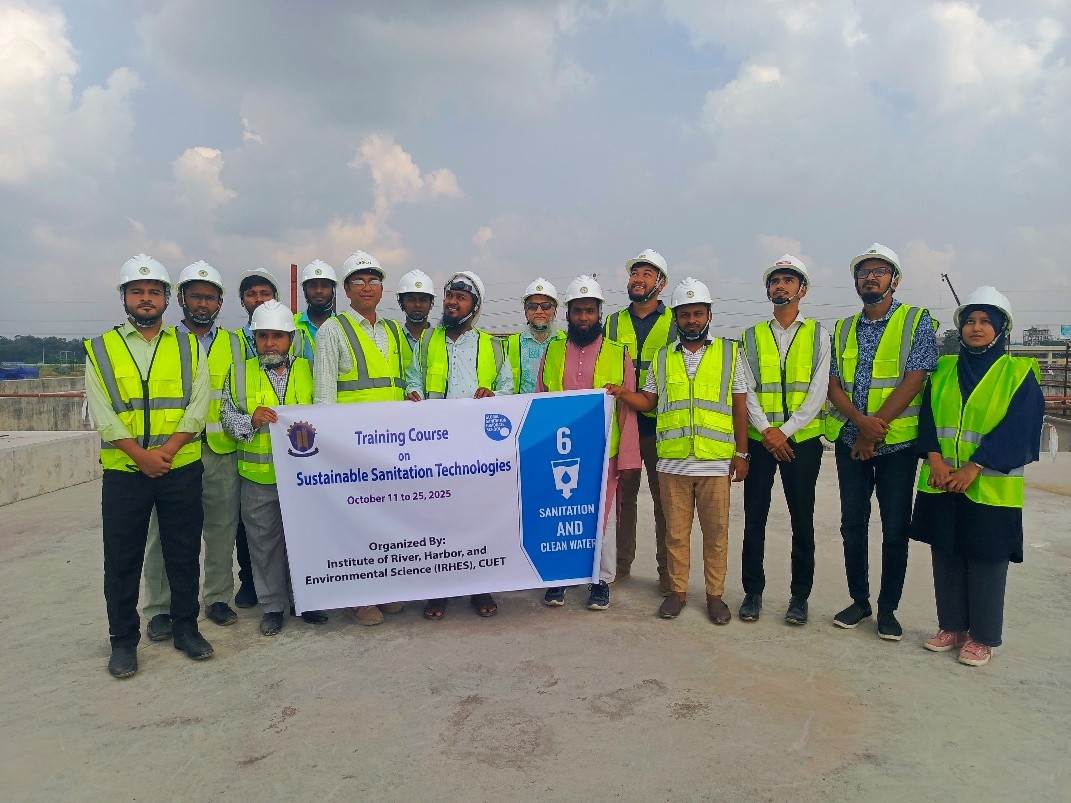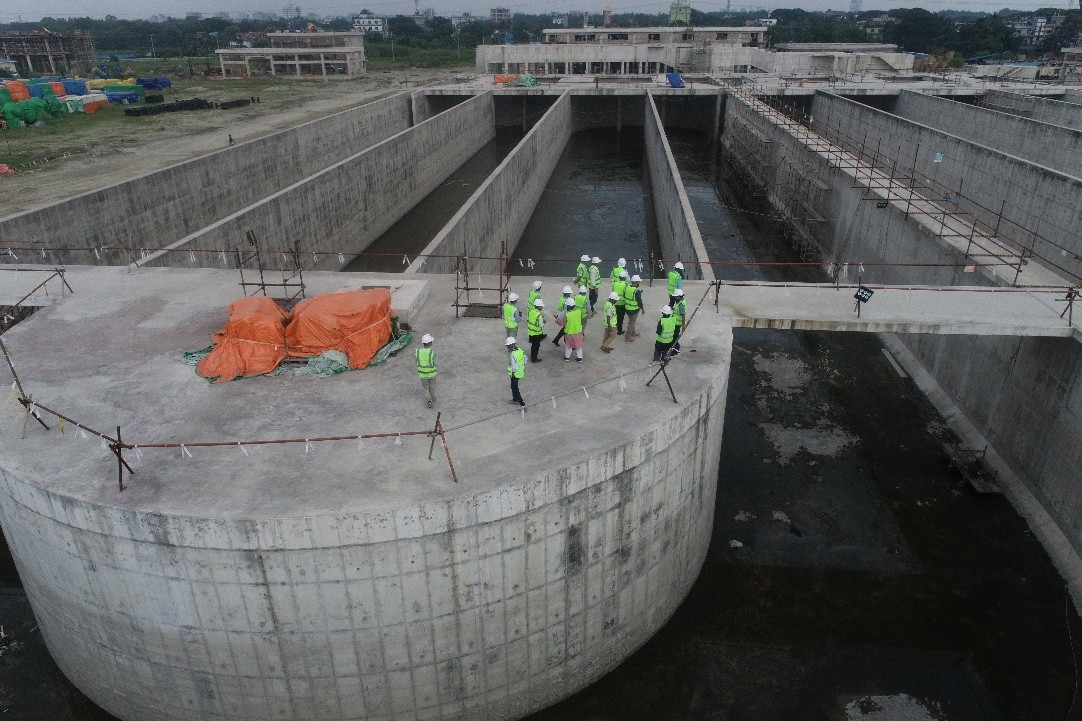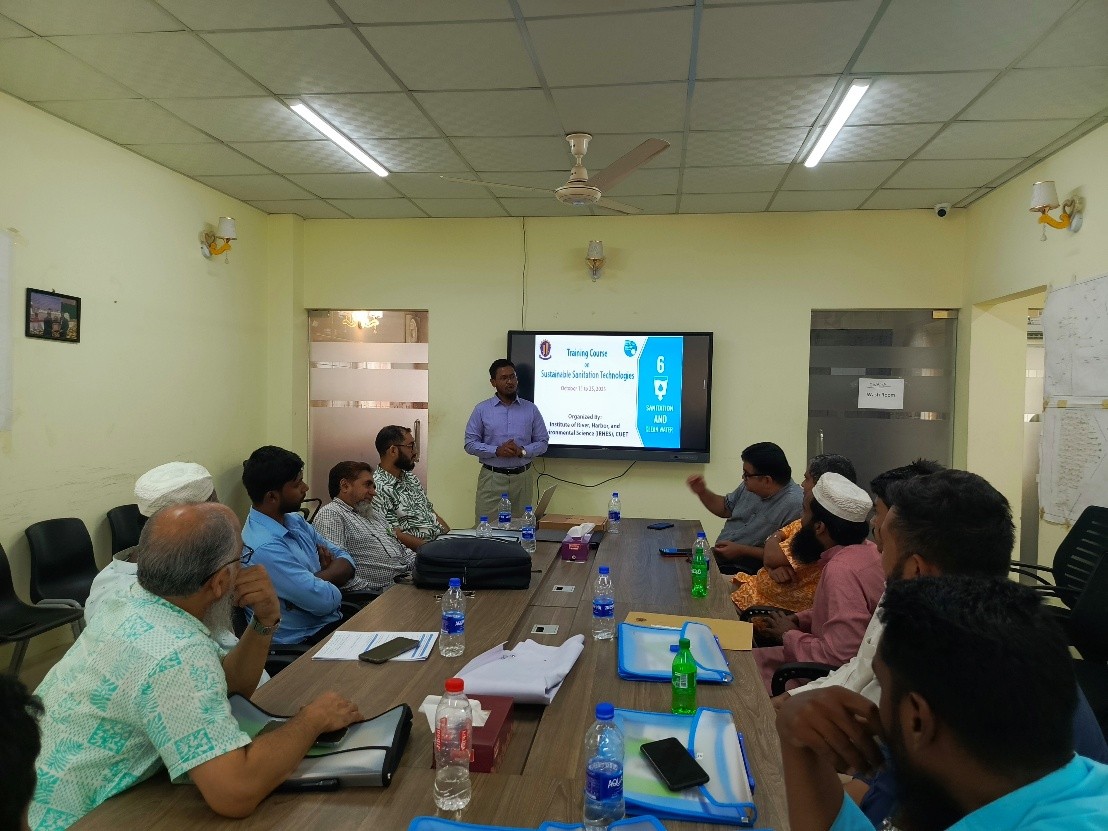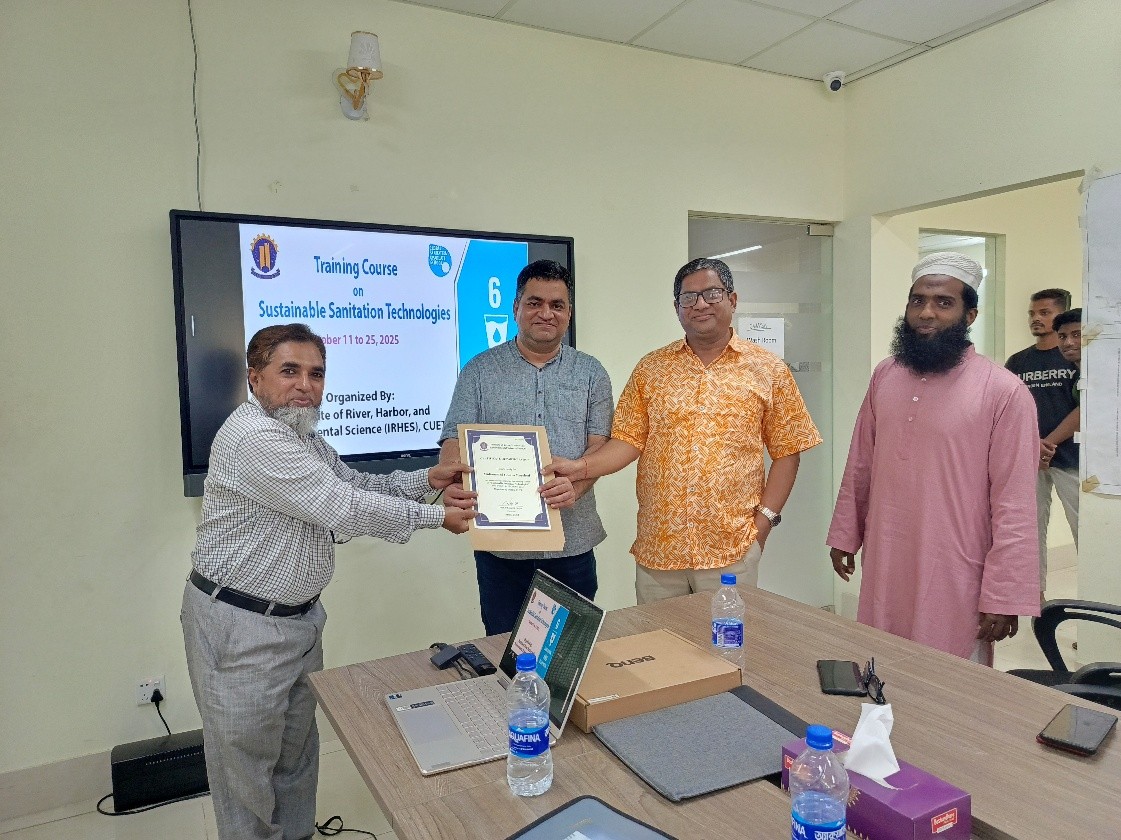GSGS RH SSEA and CUET strengthen professional capacity on sustainable sanitation technologies

The Institute of River, Harbor and Environmental Science (IRHES) of Chittagong University of Engineering & Technology (CUET), in collaboration with the Global Sanitation Graduate School Regional Hub South and Southeast Asia (GSGS RH SSEA), successfully organized a training on Sustainable Sanitation Technologies from 11–25 October 2025.
The program combined online theoretical sessions with an in-person field visit to a sewage treatment plant, bringing together 15 participants, including three women, from diverse organizations working across Bangladesh’s sanitation sector.
Eminent subject matter experts from CUET and Bangladesh University of Engineering and Technology (BUET) facilitated the technical sessions and guided individual exercises throughout the training. Participants gained a comprehensive understanding of the fundamentals of sanitation systems, on-site and off-site sanitation technologies, and faecal sludge management (FSM), along with approaches for sanitation in emergency contexts. During the field visit, officials from the Chattogram Water Supply and Sewerage Authority (CWASA) briefed participants on the sewerage network of Chattogram Metropolitan City and the process flow of an under-construction sewage treatment plant designed for a capacity of 100 million liters per day (MLD). The visit allowed participants to connect theoretical learning with real-world system design, implementation, and operation.
Prof. Dr. Tanvir Ahmed, Director of GSGS RH SSEA, joined the opening session and delivered a lecture on sanitation systems, also presenting an overview of GSGS’s ongoing initiatives. He encouraged participants to strengthen their technical competencies in sanitation, emphasizing the need for skilled professionals in the sector. Prof. Tanvir also announced that course completers would be eligible to join the GSGS Alumni Network, offering continued engagement and learning opportunities.
Participants expressed high appreciation for the program’s practical approach. Md. Ali Imran Hossain Pinko, Assistant Engineer at Rangamati Municipality, noted that “the technical sessions were excellent and covered the key issues of sanitation technology along with FSM in emergency settings.” Several participants suggested that future editions be held fully offline, with greater focus on FSM and visits to faecal sludge treatment plants (FSTPs) to gain more hands-on operational experience.
At the closing ceremony, Mohammed Ariful Islam, Superintending Engineer at CWASA, attended as the special guest and highlighted CWASA’s interest in future collaborations. He remarked, “As CWASA implements major sanitation projects, we are keen to collaborate with IRHES to facilitate practical demonstrations and future capacity-building training for local professionals.”
Prof. Dr. Asiful Hoque, Director of IRHES, delivered the closing remarks, congratulating all participants on completing the training and presenting certificates of achievement. He expressed his gratitude to the facilitators, coordinators, and supporting staff for organizing a successful program and shared his aspiration to host future editions offline to promote greater interaction and experiential learning.


